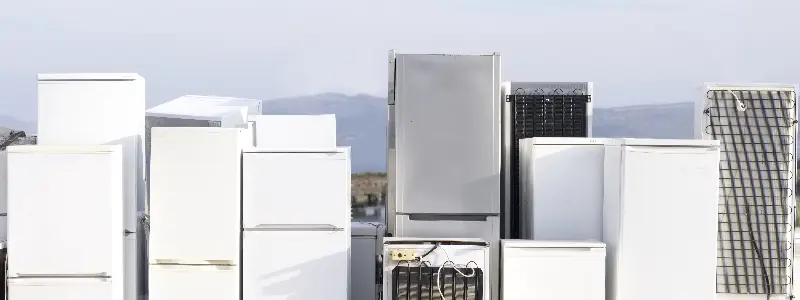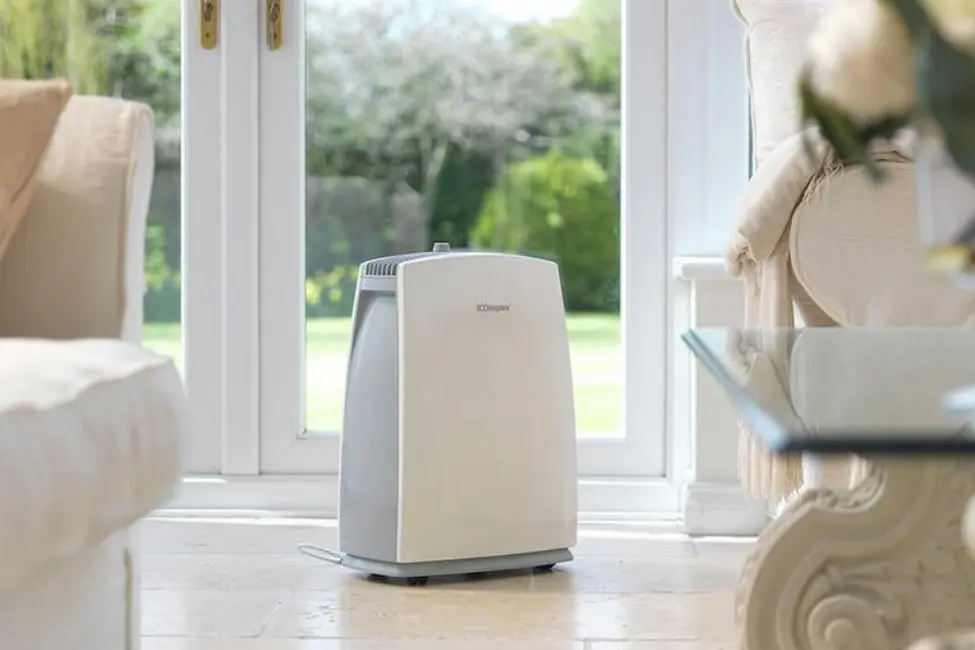A dehumidifier reduces the level of humidity in the air. It does this by drawing moist air over a cooling coil, which causes the moisture to condense and drip into a collection tank. Dehumidifiers are often used in basements, laundry rooms, and bathrooms to prevent mould growth and protect against damage caused by excessive humidity.
Are dehumidifiers bad for the environment?
In short, yes. Dehumidifiers contain a variety of chemicals, including ammonia and mercury. Ammonia is a toxic gas that can cause respiratory problems, while mercury is a neurotoxin that can damage the brain and nervous system. Both of these chemicals can be harmful to humans and the environment if they are released into the air. Additionally, dehumidifiers may also contain other harmful chemicals, such as chlorofluorocarbons (CFCs) and hydrofluorocarbons (HFCs). CFCs and HFCs are greenhouse gases that can contribute to climate change. Dehumidifiers that use these chemicals should be disposed of properly to prevent them from harming the environment.
Many dehumidifiers also contain Freon, a refrigerant that can be harmful to the ozone layer. When disposing of a dehumidifier, it is important to make sure that the Freon is removed from the unit first. This can be done by a qualified technician who will safely remove the Freon and properly dispose of it. Once the Freon has been removed, the dehumidifier can then be safely disposed of in the trash.
When disposing of a dehumidifier, it is important to follow all local, state, and federal regulations. In some areas, dehumidifiers may need to be taken to a special facility for proper disposal. To find out the disposal regulations in your area, contact your local waste management company or the manufacturer of the dehumidifier.
Can dehumidifier go to landfill?
It is important to follow all local, state, and federal regulations when disposing of a dehumidifier. In some areas, dehumidifiers may need to be taken to a special facility for proper disposal. To find out the disposal regulations in your area, contact your local waste management company or the manufacturer of the dehumidifier.

How do I prolong the life of my dehumidifier?
There are some things you can do to make your dehumidifier last longer. Make sure that you keep it clean and free of dust and dirt. You should also unplug it when it's not in use. Additionally, make sure to follow the manufacturer's instructions for proper maintenance and care. By taking these steps, you can help extend the life of your dehumidifier.
What should I do if my dehumidifier is leaking water?
First, check to see if the unit is properly plugged in. If it is, then the next step is to empty the water tank. If the water tank is empty and the unit is still leaking, then there may be a problem with the seals or gaskets. You should contact the manufacturer for further assistance. The chemicals in a dehumidifier are harmful and shouldn't be messed around with.

How can I dispose of a dehumidifier?
There are a few ways you can dispose of a dehumidifier in an eco-friendly way. One way is to take it to a special facility that accepts household appliances. Another way is to remove the Freon from the unit and recycle it. The Freon can be removed by a qualified technician, and the recycling process can be done at a local recycling centre.
Another option is to donate the dehumidifier to a local charity or organization that accepts donations of household appliances. By donating the dehumidifier, you can help someone else in need and also reduce the amount of waste going into landfills.
Finally, you can recycle the parts of the dehumidifier. Many of the parts, such as the plastic casing and metal parts, can be recycled at a local recycling centre. By recycling the parts of the dehumidifier, you can help reduce the amount of waste going into landfills.










